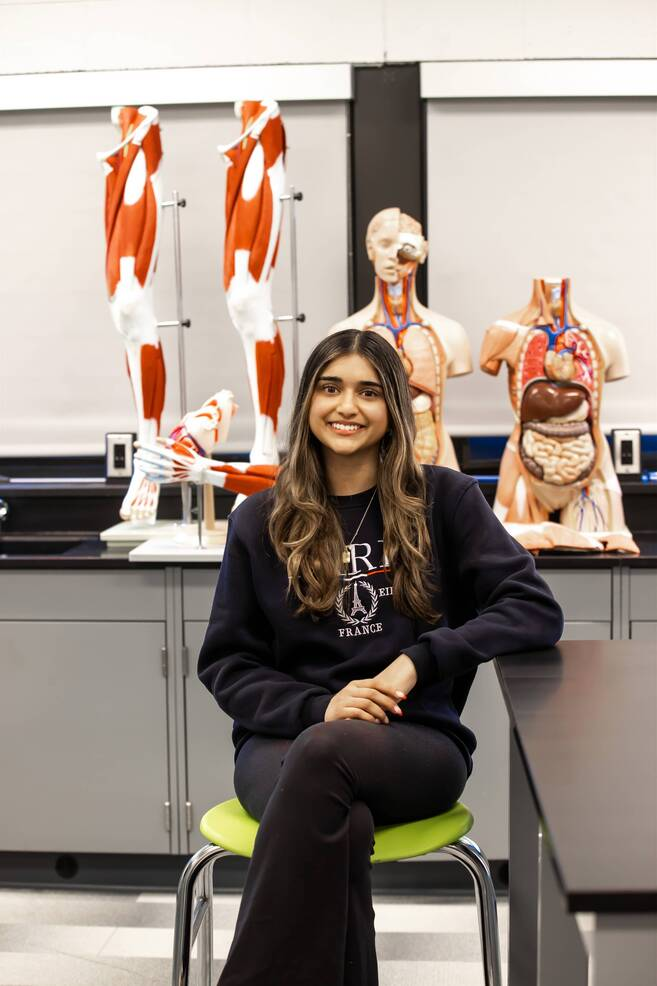Transforming Lives at RUCARES: My Journey in Autism Research and Advocacy
- Sareena Kalinani
- Mar 8, 2024
- 3 min read
Updated: Oct 28, 2024

Since December, I’ve had the privilege of assisting with research at Rutgers University Center for Autism Research, Education, and Services (RUCARES)—an experience that has opened my eyes to the profound impact of autism research and therapeutic interventions. RUCARES has become a hub for cutting-edge autism research and family-centered treatment programs that aim to improve the lives of neurodivergent children and their families. The work being done here is not just innovative; it’s life-changing.
I initially connected with RUCARES through a personal encounter that shifted my perspective on the importance of access to autism treatments. I met a mother whose son, once facing severe challenges that made day-to-day activities seem impossible, had been transformed through RUCARES’ intervention programs. She shared how her son, who had struggled with aggressive behaviors and communication barriers, had grown into a confident young man ready to work as a cashier—something that had once seemed out of reach.
Hearing stories like this fueled my desire to dive deeper into the research and advocacy work that RUCARES does. Here are a few things I’ve learned along the way:
1. Evidence-Based, Family-Centered Approaches
One of the most powerful aspects of RUCARES is its commitment to family-centered care. Their philosophy isn’t just about helping children manage symptoms; it’s about empowering families to be active participants in their child’s treatment. This holistic approach integrates therapies that support not only the individual with autism but their entire support system, recognizing the critical role that parents and caregivers play in successful outcomes.
I’ve seen firsthand how these interventions provide parents with the tools they need to help their children thrive, which is especially important in immigrant communities like mine, where stigma and lack of access often prevent families from seeking help. Culturally sensitive treatment is key, and RUCARES is working to make sure it’s a priority.
2. Cutting-Edge Research that Drives Change
RUCARES is on the frontlines of autism research, using the latest advances in neuroimaging, genetic studies, and behavioral sciences to better understand autism spectrum disorder (ASD). What excites me most is how this research directly translates into new therapies and interventions that improve day-to-day functioning for individuals with ASD.
For example, the center is pioneering new methods of early diagnosis, which can make a huge difference in outcomes. Early intervention, particularly for children in underrepresented and marginalized communities, has been shown to greatly improve social, communication, and adaptive skills, which sets these kids on a path to more independent, fulfilling lives.
3. Addressing Stigma in the AAPI Community
Through my work with RUCARES, I’ve also been able to expand my advocacy for neurodivergent Asian Americans. One of the biggest challenges in the AAPI community is overcoming the stigma that surrounds autism and other neurodevelopmental disorders. Many families avoid seeking treatment due to fear of judgment or cultural misunderstanding, which can delay the critical interventions that make a difference in a child’s development.
At RUCARES, I’ve been able to explore how cultural sensitivity in treatment plans can break down these barriers. By working with families from diverse backgrounds, the center is actively combatting stigma, creating a more inclusive space where AAPI families feel supported and understood.
4. A Personal Commitment to Advocacy
Working at RUCARES has deepened my commitment to advocating for neurodivergent individuals in marginalized communities. It’s shown me how access to early diagnosis, effective treatments, and family-centered care can make all the difference in a child’s life. But it has also highlighted the importance of creating culturally sensitive healthcare systems that truly reflect the diverse needs of the populations they serve.
As I continue my journey into medicine and policy, I am motivated by the work that RUCARES does every day. I’m more determined than ever to help build systems of care that are accessible, equitable, and responsive to the cultural contexts of all communities—especially AAPI families, who have been underserved for far too long.
RUCARES is transforming lives, not just through research and treatment but by challenging the way we think about neurodiversity and inclusion. I’m incredibly grateful to be a part of their mission, and I look forward to continuing this work—one that brings hope, possibility, and equality to every child and family affected by autism.


